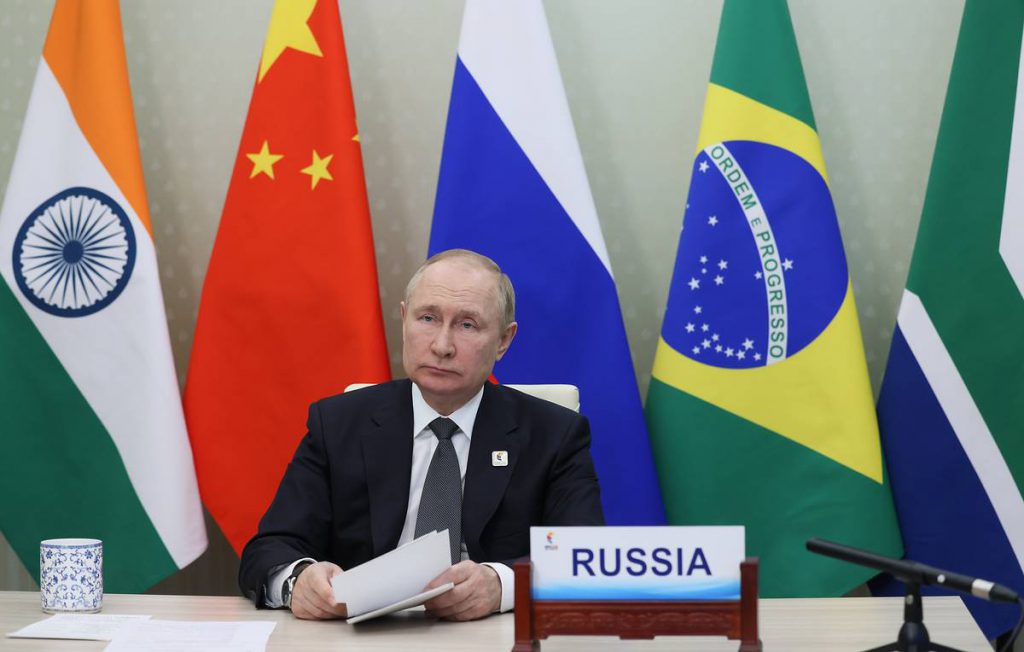Russia bypassed the U.S. sanctions by selling crude oil at a discounted rate to Saudi Arabia and China. The BRICS member Russia settled the crude oil deal by paying the Chinese Yuan and not the U.S. dollar. Countries around the world are barred from doing business with Russia due to its role in invading Ukraine.
Also Read: BRICS: Warren Buffet Predicts the Future of the U.S. Dollar
However, Saudi Arabia laundered the cheap Russian oil to Europe while its BRICS counterpart China laundered the oil to India. Other developing countries are benefiting from the U.S. sanctions as oil from Russia is now available at a cheaper price. The Gulf Cooperation Council (GCC) and other BRICS members are helping the Russian economy by purchasing oil at a lesser price.
BRICS Summit: Russia’s Crude Oil Exports Decline


Russian crude oil exports are beginning to plunge a month ahead of the BRICS summit. Russia’s crude oil shipments fell by 311,000 barrels per day (bpd) to 2.73 million bpd this week alone, reported Bloomberg.
Overall, crude oil exports are down by 640,000 barrels per day from their February 2023 levels. Additionally, Russia is now down by 1.48 million barrels per day from its peak in the last week of April.
Also Read: U.S. Economy To Reach Hyperinflation if BRICS Becomes Global Currency
Russia initially threatened to cut oil production in retaliation to the U.S. pressing sanctions against its economy. However, exporting crude oil is now one of the only sources of trade it is conducting with other countries, that too at a discounted price.


If oil exports begin to decline further, Russia’s economy could be badly hit. The country is finding it difficult to initiate business with other nations eventually leading to its economy being choked.
Also Read: BRICS Versus U.S. Dollar: Who Holds the High Ground?
BRICS is an acronym for Brazil, Russia, India, China, and South Africa. The bloc of five nations could jointly decide about the expansion and grow into BRICS+ this year. Around 44 countries have expressed interest to join the group and end reliance on the U.S. dollar.





